Big slats of orange, burning yellows, an Adriatic in electric blue: I wish I’d bought my sunglasses to the Royal Opera’s latest revival of Il turco in Italia. Moshe Leiser and Patrice Caurier’s production of Rossini’s opera buffo first burst on to the Covent Garden stage in 2005, and its shrieking colours haven’t dimmed with the years. For good or bad, this is one show when you do actually come out whistling the sets (they’re by Christian Fenouillat). I was humming Agostino Cavalca’s costumes too, from gypsy confusion through bouncing fezzes to the absurd glitter of the climactic masked ball. The world created has little to do with Fellini’s black-and-white Dolce Vita, lip-smackingly conjured in the publicity, but it’s hard to shake cultural stereotypes.
Along with colour we get bouncy characterisations, mostly from veterans of the production’s previous outings. Put Sir Thomas Allen’s voice under a microscope and you’d find abrasions and blotches, the general signs of wear and tear. Look at his total performance, though, and he’s writhing with life and prancing irony as the poet Prosdocimo, notebook in hand, trying to shape the human comedy before him into his next play. Some vocal fatigue also dogs Alessandro Corbelli, but his comic acuity as that buffo regular the cuckolded husband keeps his scenes bubbling over. Watch him in action at the start of Act Two, struggling to eat spaghetti, then sparring in his bargaining duet with Ildebrando d’Arcangelo’s Selim, the insatiable Turk with the yacht, the stubble and the roving eyes. Aleksandra Kurzak’s good-time girl Fiorilla also gives us most of the necessaries: hard flirting, vocal trills and a flash of her heart right at the end.
Why, then, given these delights, do I still drag my feet and become slow to applaud? Partly because of the dutiful quality of the Royal Opera House orchestra, which follows Evelino Pidò’s baton neatly enough but only irregularly offers the sparkle the opera’s tomfoolery needs. Partly because there’s foot-dragging by the opera itself, slow to slip into top comic gear, with music which, despite its ingenuity, seems to come from one of the composer’s nether drawers, where he probably kept his socks. Even the production’s 1950s carnival has its dark side. As associate director Richard Gerard Jones pulls soloists and chorus through the colour parade and the visual gags, we soon become aware of what’s being papered over: an opera with dry patches that is more thumb-twiddling and conventional than we thought.
Paucity of fresh voices kicks in too, though that’s not an issue with Rachel Kelly (Zaida) or Luis Gomes (Albazar), the production’s two recruits from the ROH’s Jette Parker Young Artist Programme. Promising young singers lent a bigger boost still to Classical Opera’s little run last week of Johann Christian Bach’s Adriano in Siria at the Royal College of Music’s Britten Theatre. I missed this opera when it was last staged in London in 1765, its première engagement, but this first revival proved well worth the wait.
Thomas Guthrie’s production was especially pleasing. The last thing an 18th-century rarity with classical roots needs is for the action to be transported to a Greyhound bus or another place far from home. Hail, then, Rhys Jarman’s togas, statuary, smouldering brasiers and decorative screens: forms and colours that needed only languid ladies and a little nudity to be lapped up in paint by Sir Lawrence Alma-Tadema. Nothing here ever obscured the opera seria texture and contours of Metastasio’s libretto, set by 64 composers in total, the last in 1828. J. C. Bach, the ‘London Bach’, was the 41st to drink from this well, and he did so in that warm, burbling manner suggestive of watered-down Mozart. Indeed, Mozart and his respect for J. C. Bach was the reason for Classical Opera’s staging: the first burst of a ‘Mozart 250’ project planned to keep the company busy until 2041. I do like optimism.
The top songbird was the South African soprano Erica Eloff, the voice lively with bright poise, clear as a bell. She was cast as the luckless Syrian prince Fasnaspe, who gets wrongly imprisoned about every ten minutes — par for the course in Metastasio’s saucepan stew of love, duty, deception, villainy and a squirt of moral fibre. But all the chief female singers had something to offer: Rowan Hellier as the Emperor Hadrian, some years before he built his wall; Ellie Laugharne as Fasnaspe’s lover Emirena. There was joy, too, in Ian Page’s orchestra, constantly spry in attack and intonation, and dappled with fruity winds, often the beneficiaries of Bach’s most imaginative touches. For depth of characterisation and musical drama, nothing in Adriano beats Mozart himself or the later Italians. But it’s entertaining, absorbing and much more than a scholar’s pet. And I was so pleased I wasn’t on a Greyhound bus.
Got something to add? Join the discussion and comment below.
Get 10 issues for just $10
Subscribe to The Spectator Australia today for the next 10 magazine issues, plus full online access, for just $10.
You might disagree with half of it, but you’ll enjoy reading all of it. Try your first month for free, then just $2 a week for the remainder of your first year.

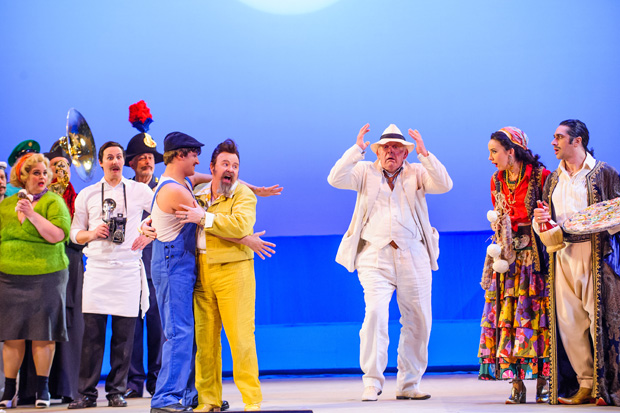
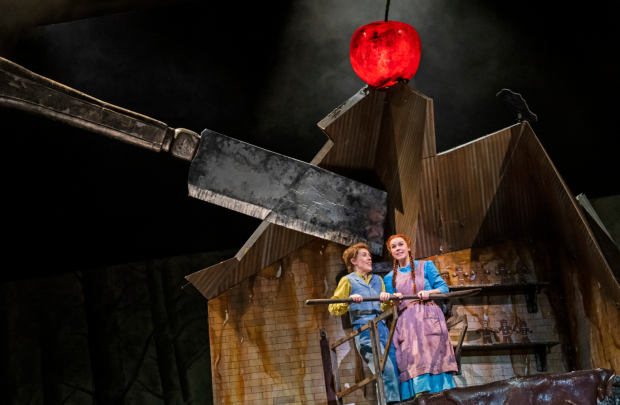
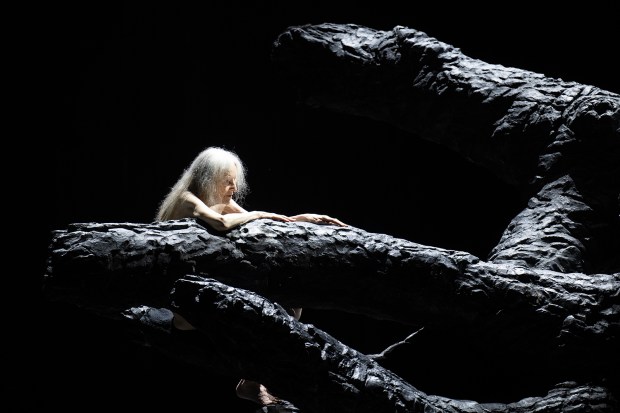
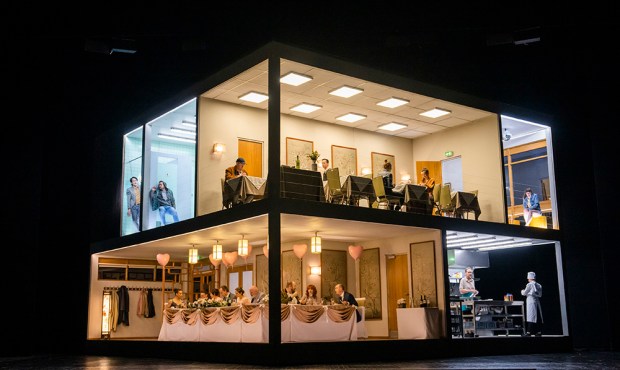
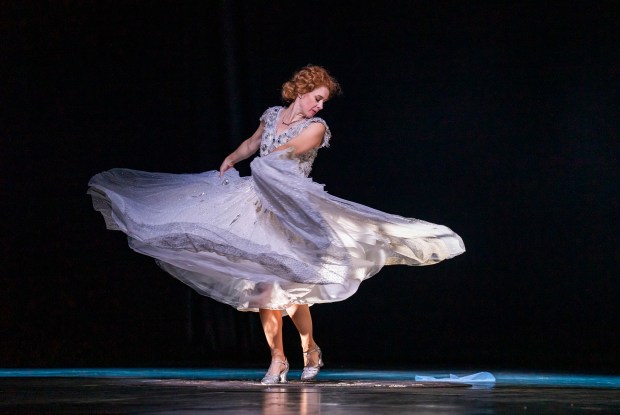








Comments
Don't miss out
Join the conversation with other Spectator Australia readers. Subscribe to leave a comment.
SUBSCRIBEAlready a subscriber? Log in